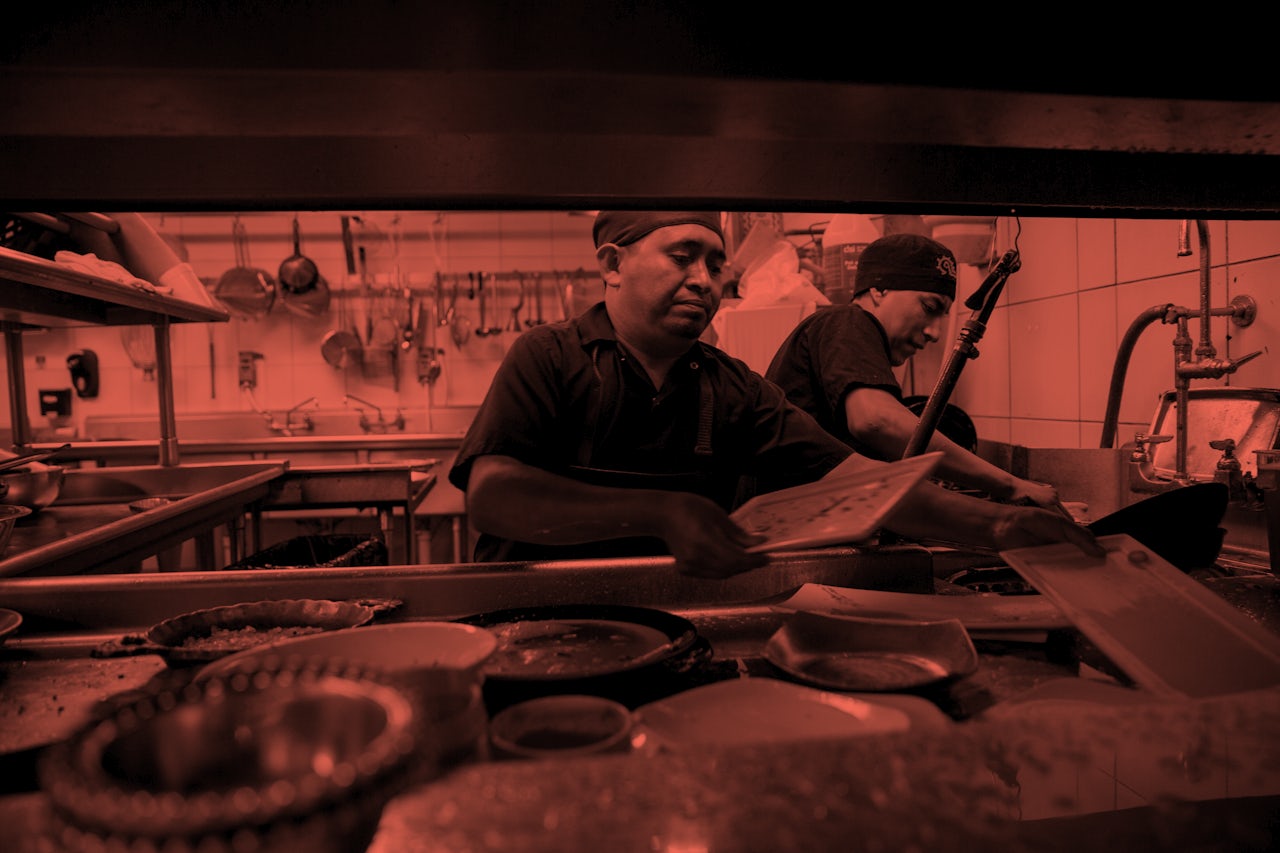On Monday, The Washington Post published a piece by the paper’s food critic, Tom Sietsema, in which he rolled up his sleeves and got to work as a dishwasher at an “upscale Mexican seafood restaurant in Houston.”
The central premise of Sietsema’s piece is that dishwashers are the backbone of any good restaurant and deserve their due, which is apparently several hundred condescending words from Sietsema. He cites the legendary chef Thomas Keller’s policy of referring to dishwashers as “porters” as evidence of the growing recognition, and prestige, of the often-hourly laborers who wash uneaten bites of food from your plate. Despite the fact that the median annual wage for the roughly half-million dishwashers in the United States is around $20,000, Sietsema never mentions whether or not Keller, or any of the chefs he talks to for the piece, pay their dishwashers more.
For his experiment, Sietsema shadowed two dishwashers, 30-year-old Esteban Soc and 19-year-old Joselino Aguilar, both immigrants from Guatemala who earn $10 an hour at the restaurant. Sietsema, who used an interpreter to conduct his interviews with the staff, doesn’t appear to have gotten very much substantive information from his comrades in dish cleaning. We learn that Aguilar worked in construction before working as a dishwasher, and thinks it’s easy in comparison, but we hear very little about how they like their current job, or about their lives. Sietsema did have nice things to say about how hard his collaborators-in-dishrags worked, however. ��My colleagues’ work ethic is heroic. The slightest pause in the action, and they’re looking for something to do,” he writes.
Sietsema’s article is part of a the broad, enduring trend of romanticizing poor people for journalistic or civic gain. In a widely mocked New York Times column last month, David Brooks took a member of the so-called “working class” to lunch at a fancy restaurant to prove a point about why Donald Trump won the election. The mayor of Salt Lake City, Ben McAdams, recently pretended to be homeless for three days to better understand the community’s needs. Gwyneth Paltrow attempted to live on food stamps for an article for her lifestyle website. In 2015, a set of rich Orange County families decided to try to live on the food from a food bank as a way of raising awareness — for the food bank.
In each of these hamfisted exhibitions, a person in a position of power attempts to place themselves in someone else’s shoes, when that’s actually an impossible task. Nevermind that McAdams was accompanied by a government official during his period of elective homelessness, or that Paltrow does not depend on food stamps, and Sietsema makes a rarified living from eating in restaurants, rather than washing dishes in them. All of these people conduct their experiments equipped with the knowledge that they can return to their comfortable lives at any moment.
Pretending to be a poor person is precisely the type of thing only a wealthy person could — or would — do. Trying your privileged hand at low-wage work or experience rarely provides revelations. The harder, more worthwhile, thing to do — for journalists, at least — is to take the powerful to task for how they treat the poor, to ask the people who work low-wage jobs substantial questions, and to treat the experience of being poor not as something exotic — but as a condition brought by the wealth and privilege of those who have so little idea of what being poor is like that they think cosplay is a sufficient and illuminating way to learn.
Towards the end of Sietsema’s piece, after he asks his temporary co-workers what aches the most after a shift, one of the dishwashers tells him that he’s usually just tired. “Sing it, brothers,” Sietsema writes in response. After his one shift, his back and feet hurt, but he can rest easy knowing he’ll likely never have to use a dishwashing hose again.
